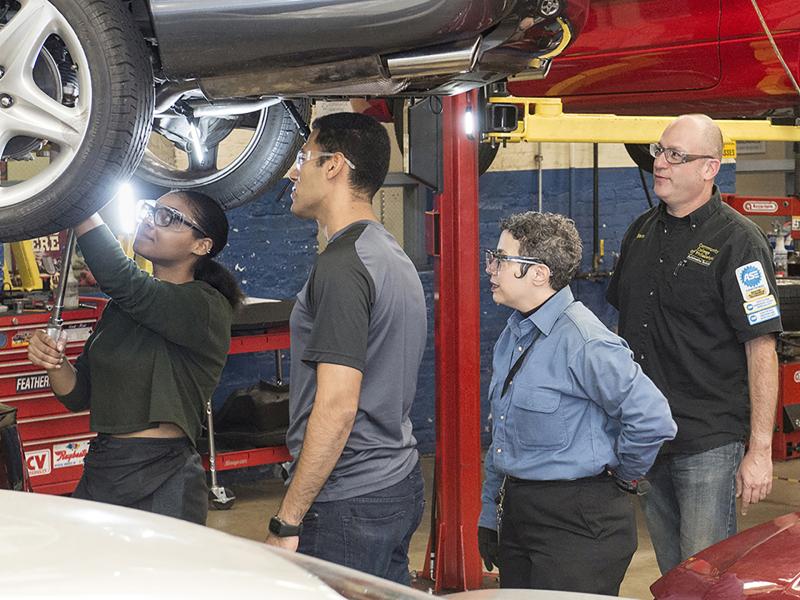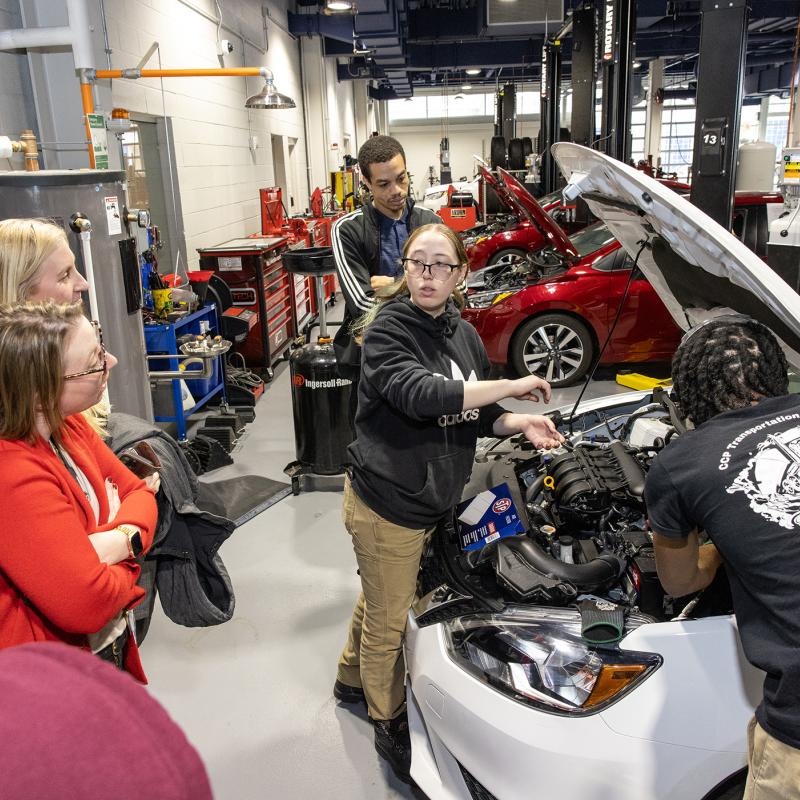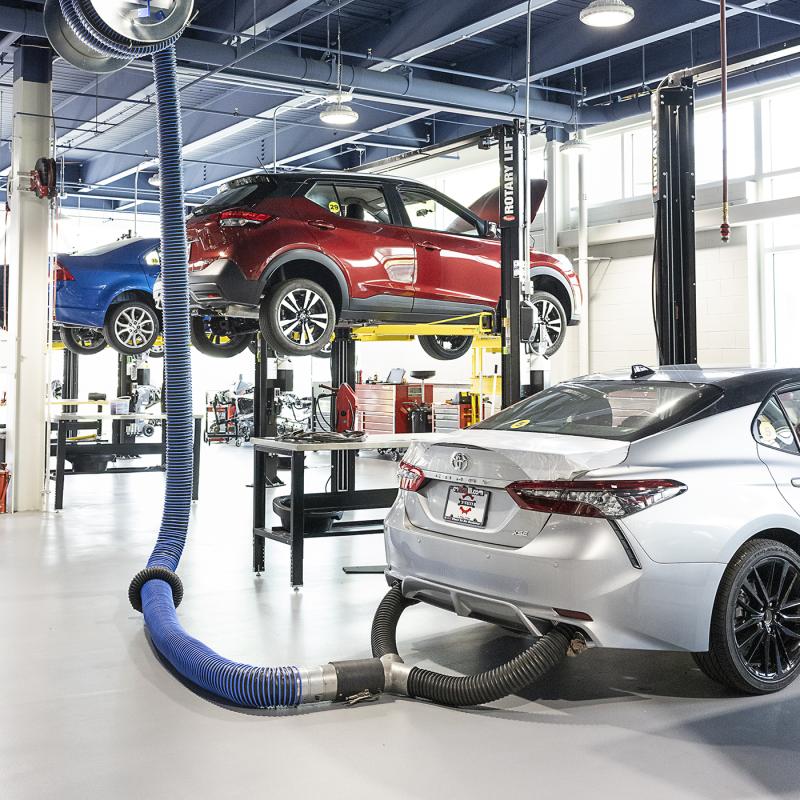Automotive Service II Proficiency Certificate
The Automotive Service II Proficiency Certificate is designed for individuals who are interested in building upon their previously gained Automotive Service I Proficiency Certificate.
-
Program Duration: Short-term
-
Degree Type: Proficiency Certificate
-
Total Credit Hours: 19

About This Certificate
Our Automotive Service Proficiency Certificate is designed for individuals who are interested in entering the field of automotive technology with a basic set of core skills.
Course Sequence

Launch Your Career in Automotive Services
- First-Line Supervisors of Mechanics, Installers, and Repairers: Est. Salary $85,864*
- Automotive Engineering Technicians: Est. salary $71,584
- Electronic Equipment Installers and Repairers, Motor Vehicles: Est. salary $48,899
- Transportation Vehicle, Equipment and Systems Inspectors, Except Aviation: Est. salary $83,716
**EMSI Data, 2025; The Greater Philadelphia Area; a percentage of people in these jobs may have a bachelor's degree or higher.
Career Outlook
$85,864
Median Salary of a First-Line Supervisors of Mechanics, Installers, and Repairers
45,379
Number of Jobs in the Region
+3.5%
10-year Job Outlook in the Region for First-Line Supervisors of Mechanics, Installers, and Repairers
First-Line Supervisors of Mechanics, Installers, and Repairers
Supervise and coordinate assignments of mechanics, installers and repairers.
Starting Pay: $54,026

Typical Tasks
- Determine schedules, sequences, and assignments for work activities, based on work priority, quantity of equipment, and skill of personnel.
- Inspect and monitor work areas, examine tools and equipment, and provide employee safety training to prevent, detect, and correct unsafe conditions or violations of procedures and safety rules.
- Monitor employees' work levels and review work performance.
- Investigate accidents or injuries and prepare reports of findings.
Explore Related Programs
Let's Get Started
